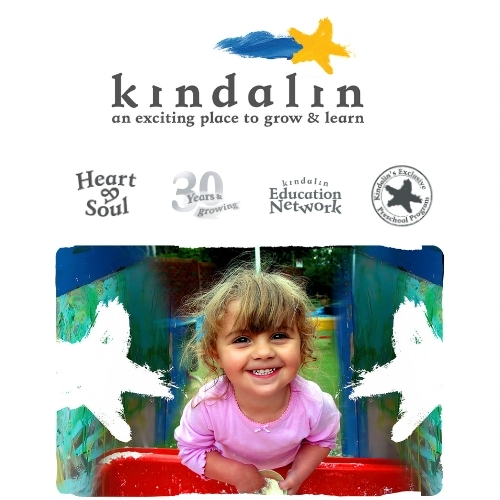Sleep. Need more?
Or is that a stupid question to ask mums?! Sleep is important for everyone. And yet for every parent who dreams of more sleep, there are teenagers denying they need it, and younger children actively resisting going to sleep night after night, sometimes for years on end.
Before having children sleep is something many adults take for granted. And despite warnings to “get lots of sleep” before the baby arrives, sleep isn’t something that can be stockpiled. This means that most parents have a sudden and sometimes shocking introduction to the experience of sleep deprivation, even when it is expected. Sleep deprivation can quickly lead to fatigue, bringing slowed reaction times, poor mood, trouble paying attention properly, trouble solving problems, and an increased tendency to take risks. Fatigue can be a real problem, whether you have to travel into work the next day, or be at home to manage your children.
And what about children who don’t get enough sleep? Research suggests children spend 40% of their childhood asleep, with sleep having a direct impact on their mental and physical development. Most parents are aware of the effect a good night’s sleep has on their child’s ability to contain their emotions, and in fact, sleep is one of the primary activities of the brain in early development, with children under two asleep more often than they are awake. Sleep is vital for learning and memory as it allows our brains to sort and process information from the day, encoding information into long term memory.
So how much sleep is enough? The Sleep Health Foundation of Australia recommends that Australian adults need around 7-9 hours per night, whereas babies may sleep up to 18 hours per day. Although everyone varies, here are some general guidelines:
- Newborn – 3 months: 18 hours a day
- 3 months – 1 year: 14 – 15 hours a day.
- 1 – 3 years: 12 – 14 hours a day.
- 3 – 5 years: 11 – 12 hours of sleep a day.
- 6 – 12 years: 10 – 11 hours a day.
- 12 – 18 years: 8.5 – 9.5 hours a day.
- Adults: 7-9 hours a day.
Although sleep needs change constantly over the first five years, between the ages of 5-12 years children still require 10-11 hours of sleep per night. Unfortunately sleep problems are also prevalent at this age, arising from competing demands on time (schoolwork, friends), increasing stress and anxiety, increased use of computers, or difficulties in settling to sleep. In these crucial primary years, poor sleep can lead to mood swings, behavioural problems and cognitive problems.
For example, Ben, (names changed) is a 7 year old boy who was brought into the Practice with suspected ADHD. His parents and teachers reported that he had difficulty sitting still, problems concentrating, frequently interrupted the teachers and other children, was clumsy, made little effort and generally acted inappropriately in the classroom and in the playground. At home, Ben’s mother worried that he was highly anxious and depressed, and that he seemed to lack energy – when he wasn’t getting into trouble. Ben was also gaining weight and eating more than usual. Although Ben’s behaviour looked a lot like ADHD, it turned out that Ben was only sleeping 7-8 hours per night, and with some significant adjustments to his routines which increased his sleep, many observable dramatic and positive changes occurred in his behaviour.
Although up to 70% of children with ADHD suffer sleep problems, it turned out that Ben’s problems were almost all attributed to lack of sleep, and resolved easily when his sleep passed 10 hours a night. He was one of the brightest and charming young clients I’ve had the pleasure of working with and it was remarkable to see the ‘real’ Ben emerge after years of chronic sleep deprivation.
How can you tell if it’s a sleep problem?
It’s sometimes hard to determine whether children have a sleep problem or are just being challenging – after all, it’s not just children who don’t get enough sleep who can be overactive and noncompliant… but a sleep problem does make these behaviours more likely. Behavioural signs such as difficulty settling, falling asleep or staying asleep may indicate a problem, as do other flags such as snoring or other breathing problems while sleeping.
In addition, if your child frequently has a tough time waking up in the morning, feels sleepy during the day, has problems paying attention, is very moody or grouchy, or overly anxious or impulsive, these may all be signs that your child is short on sleep.
So, why is sleep so important?
We don’t fully understand what goes on during sleep yet, but during sleep, we alternate between ‘quiet’ Non-Rapid Eye Movement (NREM), and ‘active’ Rapid Eye Movement (REM) sleep. We need both types of sleep for health as during the deep NREM sleep, blood supply to the muscles is increased, energy is restored, tissue growth and repairs occur, and important hormones are released for growth and development. In comparison, during REM or dream sleep, although our bodies are immobile (to stop us acting out our dreams!), our brains are thought to be actively processing sensory information and emotions from the events of the day.
If you, or your child are having trouble sleeping, here are some tips that might help:
- Having a routine helps
- Follow a regular daily routine: try to eat, wake and go to bed at the same time every day.
- Create a sleep routine – many people enjoy a warm bath, reading quietly or a warm drink. A light snack can help – it’s harder to sleep on an empty stomach. Creating a simple routine teaches your body to get sleepy at the same time.
- Avoid stimulating activities in the hour before bed: This includes strenuous exercise, computer games, TV, movies and big discussions before bed. Minimise alcohol and caffeine, (not just coffee, but caffeinated drinks like cola) which interfere with sleep. Avoid for at least 4 hours before going to bed.
- Sleep windows are important. Try not to ignore feeling sleepy, and for young children learn how to recognise sleep signals (‘tired signs’ are behaviours such as eye rubbing, avoiding eye contact) to avoid children becoming over-tired.
- If you have a new baby, prioritise your sleep. Sleep when the baby sleeps, and take regular naps.
- Napping can be helpful
- It is best to nap for 15-30 minutes. This will improve your alertness and concentration. It is often called a power nap. A short nap of this length may reduce the risk of falling asleep. Sleeping for a longer time is not as effective, as after a long nap, you may wake up feeling groggy.
- Naps can help with fatigue, but naps after 4pm may make it harder to get to sleep at night (except for very young children). If you nap regularly, you should try to nap at the same time each day, and between 2-3pm is often the easiest time to sleep due to the body’s natural rhythms.
- Make beds and bedrooms places for sleep
- Do not lie in bed awake for long periods. Beds are for sleeping, so if after 20 minutes you are not asleep try getting up and sitting quietly in another room until you feel sleepy again.
- Similarly, bedrooms are for sleeping, not entertainment. TVs, computers, mobile phones and electronic devices are not good for sleep. Try to eliminate them from bedrooms, particularly for teens who may be posting on social media or surfing the net instead of sleeping.
- Promote sleep naturally
- Daily exercise promotes good sleep – even a walk will help.
- Time spent in bright sunlight promotes good sleep.
- Dim the lights. Production of melatonin, the hormone that promotes sleep can be reduced by bright lights and the blue lights of computers.
- Learn to relax – in bed at night start by tensing each muscle in your body, hold for a count of 3 and release. Work from your head all the way down to your toes, allowing yourself to release the tension from the day. This can be a gentle way to teach children to wind down, as well as enhance sleep for adults.
- Get practical help for racing minds and worrying
- If worrying, or a racing mind keeps you awake, cognitive behavioural therapy or mindfulness therapies can be helpful.
- Many children and adults find white noise beneficial. This may include an app, or a radio playing quietly, or a small fan in the room.
- Childhood fears of the dark, monsters or general anxiety can get in the way of children settling to sleep. The stepladdering approaches in cognitive behavioural therapy can help parents understand how to gently improve self-settling.
If you have a smartphone, download a sleep app to measure the length and quality of your sleep – you might be getting more than you realise, and if not, it can help you start to track your progress towards getting the sleep you want. Sleep apps can be popular with teenagers who enjoy sleep tracking – however, remember that they involve placing the phone under the pillow, which may in itself increase their access to technology and intrude on sleep!
Generally speaking, if you’ve tried consistent routines and sleep remains a problem (e.g. trouble getting children to go to sleep at bedtime, or stay asleep during the night), then it is a good time to start looking for help. For the majority of people, the most effective treatment will be behavioural (rather than medication). However, if your child snores loudly at night or is very restless, or seems to have poor quality sleep, then they may have a treatable sleep disorder that is causing poor quality sleep.
Finally, it’s helpful to know that the symptoms of sleep loss and depression are very similar, so if you are experiencing problems personally for more than a week or two, it’s good to check in with your GP or health professional.
Useful resources:
Sleep Health Foundation: http://www.sleephealthfoundation.org.au/
Sleep problems in children and teenagers: http://raisingchildren.net.au/articles/persistent_sleep_problems_children.html
Tired signs in babies and children: http://raisingchildren.net.au/articles/is_my_child_tired.html























